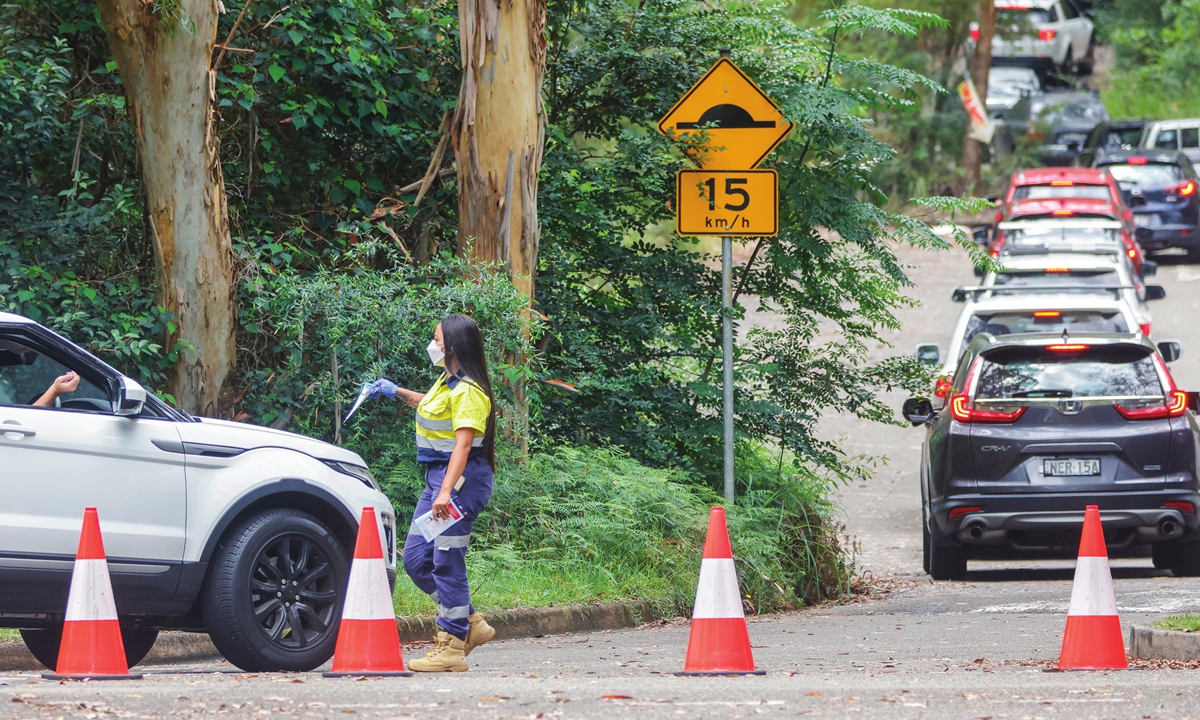Australia in midst of COVID-19 reinfection wave: expert

A worker hands out forms to drivers at the Warringah Aquatic Center Histopath Pathology COVID-19 Drive-through testing clinic on January 10, 2022, in Sydney, New South Wales, Australia. NSW has recorded 18 deaths from COVID-19 within one day. Photo: VCG
A leading expert has warned of a COVID-19 reinfection surge across Australia in the lead-up to winter.Adrian Esterman, an infectious diseases expert from the University of South Australia, on Monday said reinfections were on the rise as natural immunity from the peak of Australia's Omicron wave in December 2021 and January begins to wane.
Governments across Australia do not have systems in place to track reinfection rates, which Esterman said has left experts relying on data from overseas.
"We can't say hand over heart the same thing's happening here, but there's no reason why we wouldn't be seeing a reasonably large number of reinfections in Australia as well," he told The Canberra Times.
According to the Canberra Times, the subvariants have proved adept at avoiding immunity from vaccination or prior infection, and Australians are increasingly testing positive for COVID-19 a second time.
Australia's rate of COVID-19 infection has remained stable at approximately 40,000 new cases per day since mid-April.
In the Australian Capital Territory, the number of cases being treated in hospitals hit an all-time high of 76 on Sunday. However, Esterman said the expected winter spike in cases would not have the same impact on the hospital system as previous waves.
The federal, state and territory governments have urged all Australians to receive their influenza vaccinations to avoid the risk of a double blow to the health system.
Xinhua



